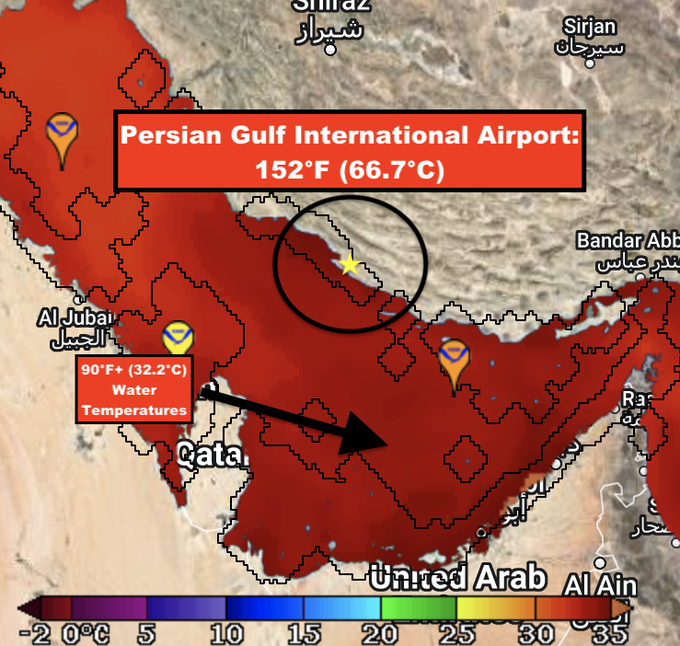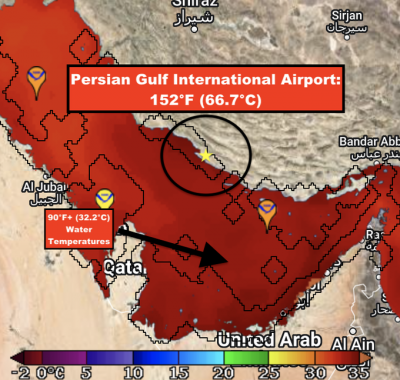In an area overlooking the Arabian Gulf, temperatures reached 66.7 degrees Celsius, which approaches or exceeds the levels believed to be the most extreme that the human body can tolerate, according to an extensive report by The Washington Post. Experts say that such weather conditions are more than enough to surpass the body's ability to regulate its internal temperature, providing a glimpse into the dangers expected to become more prevalent with increased global warming amidst extreme heat and humidity.
The Persian Gulf International Airport in Iran reported a heat index of 152°F (66.7°C) today at 12:30 pm. These are intolerable conditions for human and animal life. Colin McCarthy (@US_Stormwatch) tweeted on July 16, 2023, about this extreme situation.
Cascade Tohulski, an assistant professor at Montana State University, stated, "We know that these extreme temperatures can kill people now." Some research has shown that the human body loses its ability to cool itself through sweating at 95 degrees Fahrenheit (35 degrees Celsius), and this is also affected by humidity, wind speed, the angle of the sun, and cloud cover.
Without the help of air conditioning, fans, or shade, the body relies solely on its own cooling system to endure the heat. Heat can dissipate from the body if the air temperature is lower than the body temperature. Otherwise, sweating is the only way to cool down, transferring heat from the body to the air as it changes from a liquid to vapor. However, this also has its limits.
The World Meteorological Organization warned that the heatwave affecting the northern hemisphere will intensify this week, which could lead to higher nighttime temperatures and increase the risks of heart attacks and fatalities.




